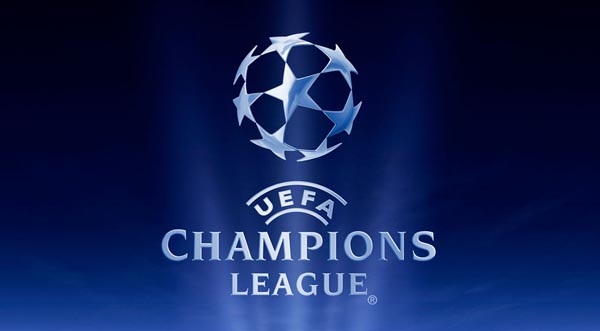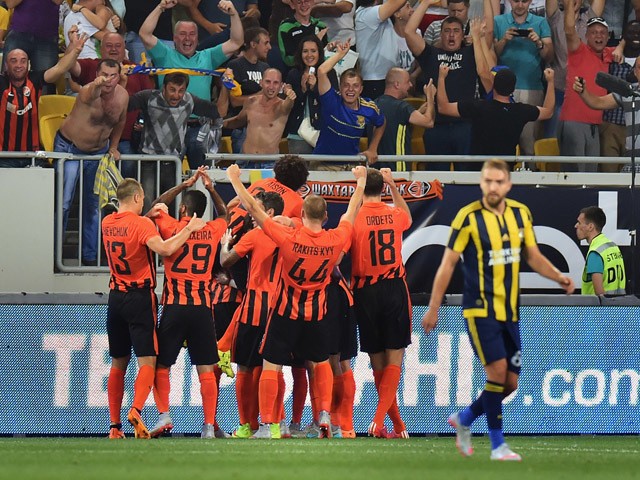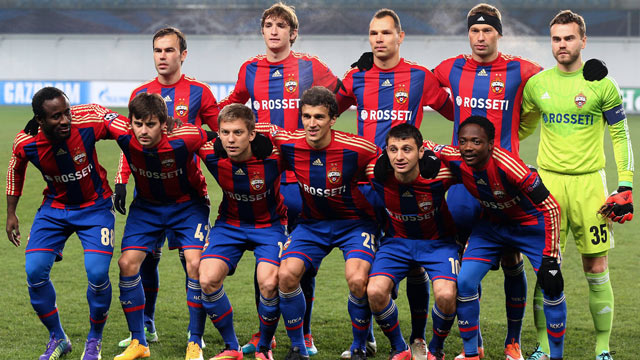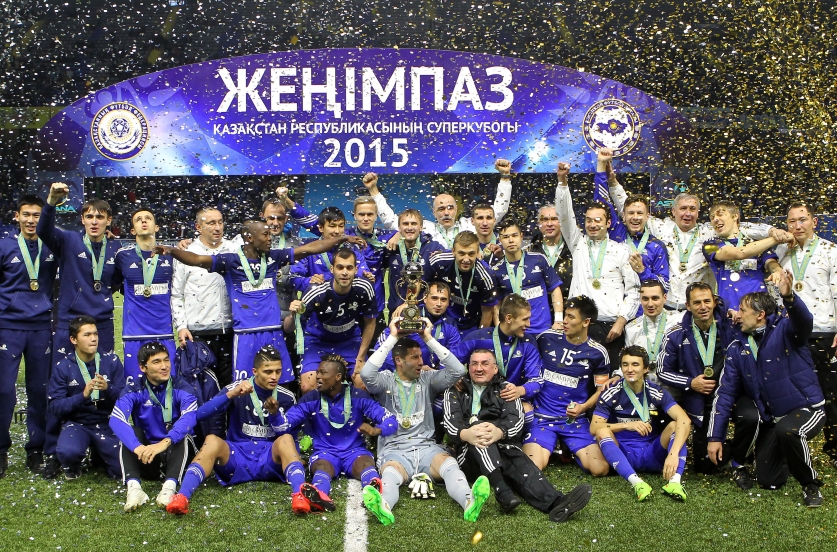By Saul Pope, and Manuel Veth –
Group A: Shakhtar Donetsk (Ukraine)
Stadium:
Arena Lviv (34,915)
Note: Due to the ongoing conflict in the Donbass, Shakhtar is forced to play in exile.
About the Club:
Shakhtar Donetsk are the most consistent team in the post-Soviet space, as they have now managed to qualify for the Champions League for six consecutive years. Shakhtar’s recent qualification campaign saw them convincingly dispatch the Turkish club Fenerbahçe from Istanbul (3-0 on aggregate) .
Rapid Wien proved to be a much tougher opponent, and the Austrians came within a whisper of defeating Shakhtar 3-2 in Lviv, which would have seen them go through on the away goal rule after a 1-0 loss in Vienna. But Rapid missed several key opportunities in the dying minutes of the second half, and it was the Ukrainians that went through to the group stage of the Champions League.
The Group Stage will provide the club with a financial life line as Shakhtar are still exiled from the Donbass due to the continued politically unstable situation in Eastern Ukraine—playing exile has had a major impact on the club’s finances. In addition, the club was forced to sell two key players this summer— Douglas Costa who left for Bayern, and Luiz Adriano who moved to AC Milan. Early games in Europe suggest that Marlos, who had two outstanding games in the Champions League playoffs against Rapid Wien, will replace Douglas Costa. Despite playing mostly as a playmaker and false nine behind a natural striker, Alex Teixeira will be expected to provide the majority of the goals for Shakhtar once again. Also, watch out for Shakhtar’s Ukrainian wunderkind Viktor Kovalenko, who has recently been called up to the Ukrainian national team.
Know your Oligarch:
Rinat Akhmetov was once considered the richest man of the post-Soviet space. Akhmetov made most of his money in the coal and steel industry of the Donbass, and while the conflict has meant that he has taken a substantial hit, the tycoon is still considered the richest man in Ukraine and one of the most influential oligarchs in the post-Soviet space with an estimated wealth of $6.6 billion.
Opponents:
Shakhtar was placed in Group A along with Sweden’s champion Malmö FF, the French champion Paris Saint-Germain (PSG), and the Spanish giant Real Madrid, in what may be one of the most difficult groups in this year’s Champions League (although Group D, and E may lay claim to that title). Visits of PSG, and Real Madrid will be especially well received in Lviv, and Shakhtar will certainly experience full support in their home away from home for those matches.
What to expect:
In the 2012-13 season Shakhtar was placed in an equally difficult group when they faced Champions League winner Chelsea FC from London, and Juventus Turin from Italy, and in the end it was the Ukrainians, who advanced to the round of 16 as they finished second ahead of Chelsea. Shakhtar this season, however, will be hard pressed to emulate the success of the 2012-13 edition of the club, as the exits of Douglas Costa, and Luiz Adriano have weakened the club. Furthermore, both PSG and Real Madrid will prove to be more difficult opponents than Chelsea, and Juventus in 2012. Shakhtar will therefore most likely finish third, but relegation to the Europa League could bring back the ghosts of 2009 when the club last won an international title.
You should be reading:
“Double Agents – Shakhtar Donetsk and the role of third-party ownership”
“Douglas Costa – Bayern Transfer Begins Rebuilding Process at Shakhtar”
“Paris Saint-Germain – A Tough Champions League Encounter for Shakhtar Donetsk“
Group B: CSKA Moscow (Russia)
Stadium:
Arena Khimki (capacity 18,636)
About the Club:
The last decade or so has been one of the best in CSKA’s history. As well as the UEFA Cup win in 2005—the first Russian club to lift a European trophy—CSKA has also won five domestic titles since 2003 and only once finished outside the top three. The club has undoubtedly taken over from Spartak Moscow as the capital’s best side.
Leonid Slutskiy’s side has the ability to battle; in both of the last two seasons they have turned the heat up on their rivals to finish strongly. Particularly memorable is 2013-14, when it seemed certain the title would go to either Zenit or Lokomotiv, but in the last two rounds of matches CSKA slipped in and won the league.
In 2015 the side showed character and cunning in abundance to beat Sporting CP 4-3 in the Champions League play-off round. Seydou Doumbia, recently returned to CSKA from Roma and on his way to becoming a club legend, scored three of the side’s goals over the two games—but Ahmed Musa is the player who caught the eye of many. The young Nigerian forward is a player CSKA are credited with developing into a star of the future.
CSKA will want to build on last season’s group stage in which they started poorly and finished strongly, but may be hampered by their manager. Following the sacking of Fabio Capello, Slutskiy has been drafted in to try and secure Russia’s Euro 2016 qualification. The final group games and—what appears to be the most likely route for Russia—the play-off matches run parallel with Champions League group stage matches. Slutskiy may find it difficult to juggle both of these along with the regular domestic season.
Know your Oligarch:
Evgeny Giner, a businessman with interests in both Russia and Ukraine, is CSKA’s President. A complete picture of the club’s funding, however, is unclear. Forbes have suggested that Roman Abramovich is one of the main sources of club funding, but all that can be ascertained for sure is that a complex network of companies owns shares in the club.
Opponents:
Dutch champions PSV Eindhoven, German runners-up VfL Wolfsburg and a rejuvenated Manchester United will provide a stern test and make progression a challenge.
The BBC is already talking about Manchester United’s ‘long’ trip to Moscow, as if its players have never travelled for more than four hours before. Many teams do, however, underperform in the less familiar environment of Russia—which may prove crucial for CSKA.
What to expect:
CSKA proved last season that they can punch above their weight—and Leonid Slutskiy has twice got the side into the knockout phase— so don’t expect them to be pushovers. Despite this, their limit will be Europa League qualification and a good run in that tournament. But I’ll be delighted if I’m proved wrong…
You should be reading:
“The Soldier’s Tango – A Homage to CSKA Moscow in Catalonia”
“CSKA Moscow – CSKA Fans Against Racism”
“CSKA Moscow vs. Anzhi – Crowd Incident Casts New Shadow Over Russian Football”
Group C: FC Astana (Kazakhstan)
Stadium:
Astana Arena (30,000)
About the Club:
FC Astana is not only the first club from Kazakhstan in the Champions League group stage, but they are also the youngest club in this year’s competition. The club was formed in 2008 after two clubs—Megasport and Alma-Ata—merged to create a new club for Kazakhstan’s young capital Astana. Until 2011 FC Astana was named Lokomotiv Astana, but the club’s international ambitions were underlined when the club was given the more internationally recognized name Football Club Astana.
Astana reached the group stage after beating Slovenia’s champion NK Maribor (0:1, 3:1), and then APOEL Nicosia from Cyprus in the playoffs (1:0, 1:1). The most prominent player is Nemanja Maksimović, who received his footballing education in Serbia at Red Star Belgrade. Maksimović moved to Kazakhstan via Hellas Verona (Itlay), and NK Domžale (Slovenia), which sold Maksimović for €2 million to FC Astana in February. Now just 20 years old Maksimović can claim that he is a football hero in two countries, as he scored not only the deciding goal for Serbia in this year’s U-20 World Cup against Brazil, but also the all important equalizer in Cyprus that secured Astana’s Champions League spot as the first club from Kazakhstan.
Know your Oligarch:
In 2013 the club became part of the Astana Presidential Sports Club, a multi-sport federation, which acts as the parent organization of various sport clubs in the capital. These include: the ice hockey team Barys Astana, the Basketball Club Astana, the boxing club Astana Arlans, and the bicycle team Astana, which regularly competes in the Tour de France. The club receives its funding from the National Welfare Fund Samruk-Kazyna, which owns, either in whole or in part, many important companies in the country, and is estimated to be worth $78 billion.
Opponents:
Astana is the easternmost qualifier to the Champions League, and Benfica Lisbon from Portugal, and Atlético Madrid from Spain will not only provide difficult opponents, but will also require long travel times for the fans from both clubs. Lisbon, and Astana are separated by 6200 km, which equals the distance from Berlin to New York! Galatasaray Istanbul from Turkey will be the closest rival of Astana’s group rivals, and the close political, and economic connections between Turkey (the Astana Arena was built by a Turkish company), and Kazakhstan should provide for a friendly atmosphere in Astana.
What to expect:
FC Astana might be the biggest outsider since the establishment of the UEFA Champions League. The club’s only advantage could be that both Benfica and Atlético will suffer from jetlag when playing in Astana, on the other hand, the Kazakhs will have to deal with the same issue when they travel to Portugal’s Atlantic coast, and the FC Astana will most likely finish the group last.
You should be reading:
“FC Astana – Reaching for the Stars in Kazakhstan”
Saul Pope has been following Russian football for twenty years. Since 2004 he has been a regular contributor to When Saturday Comes magazine, mainly on the economic, political and social aspects of Russian football. He is a fluent Russian speaker who lived and worked in St. Petersburg for several years. A Zenit St. Petersburg fan who first saw them live in 1998, his all-time favourite Zenit players are Aleksandr Panov and Aleksandr Spivak. He once saw Andrey Arshavin in a supermarket, but was too embarrassed to go and ask for an autograph. Follow Saul on Twitter @SaulPope.
Manuel Veth is a PhD candidate at the University of London King’s College, London. Originally from Munich, his thesis is entitled: “Selling the People’s Game: Football’s transition from Communism to Capitalism in the Soviet Union and its Successor States”. Follow Manuel on Twitter @homosovieticus.























COMMENTS